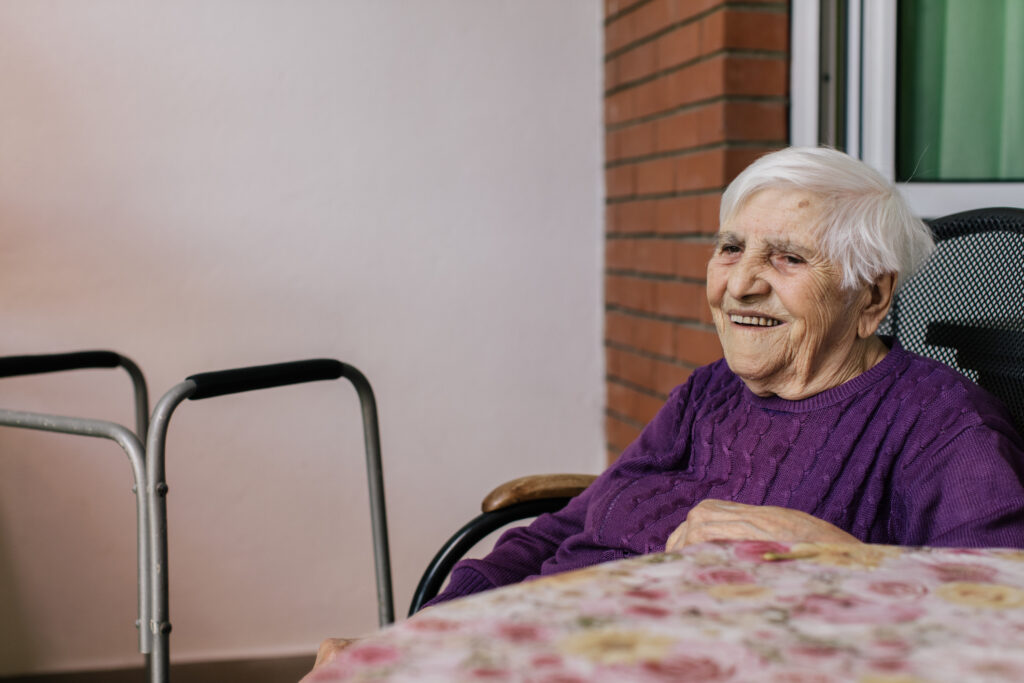
“Our sector would be lost without this type of funding”
“Owning gives us security of tenancy and more certainty over our costs.” Read how Charity Bank is helping a homeless charity to move from leasing most of its properties, to owning them.
Homeless Action Resource Project (HARP) is the leading homelessness charity in Southend-on-Sea. We spoke to Nicky Bowling, Director of Property Development at HARP, to find out why the charity wants to own most of its properties, and how she found the process of getting a loan.
Why is there such a need for HARP?
We look after the people who fall through the cracks because the council doesn’t have a statutory obligation to house them, or because they’re classed as very low priority. Homelessness isn’t going away and with the cost-of-living problems, we’re seeing more people in need. Southend-on-Sea is a seaside town within easy reach of London, with a need for short-term seasonal workers, so we experience a lot of homelessness in the area.
Can you tell us about the project that you needed a Charity Bank loan for?
Our first Charity Bank loan was in 2018. We bought 26 bedsits and four flats off the local housing association. We’d been leasing the property for around 10 years and decided it was time to buy. We then borrowed more money recently to refurbish each of the homes.
How did you find the process of getting that first loan?
It was the first time we’d had to borrow money, so it was quite worrying, but we knew that we could make it stack up financially. We were trying to expand our accommodation and wanted to move towards owning our properties rather than renting them. Our aspiration is to own 60% of our bed spaces, and we’re now on the cusp of achieving that.
Could you have bought the property without taking out a loan?
No. We’d been lucky enough to have a very generous benefactor, who left us quite a bit of money when he died, and we’ve had a decent amount of grants in, so we’d been able to build up a small portfolio of properties. However, we’d run out of investment money to fund any more properties.
We felt that it was time to make our existing assets work harder for us. Apart from grants from Homes England (which are only repayable if you sell the properties), they were unencumbered, so it didn’t feel too risky using them to secure a loan.
Thankfully, I’ve got some very forward-looking trustees on the board who supported that decision and could see that it was a way for us to grow.
What benefits do you get by owning rather than renting your properties?
If you’d asked me this 18 months ago, I’d have said that the loan repayments were a lot lower than the rental costs, but with interest rates rising, there’s not much difference between the two now.
The key benefit is that we’ve got autonomy over the properties we own. We’ve had a couple of instances where a landlord suddenly decided they wanted to sell. Owning gives us security of tenancy and greater certainty over our costs. Plus, not all landlords are as responsive as we are, and there’s no guarantee that they’ll maintain a leased property to the standard that we want.
Did you receive any extra grant funding as a result of the Charity Bank loans?
Yes. The housing association effectively recycled the grant they had on the property we bought with the loan, so we only needed a loan for 50% of the cost. We couldn’t have afforded to buy it otherwise.
We also received a large grant from the government’s Single Homelessness Accommodation Programme (SHAP) towards the refurbishment costs.
Why did you choose Charity Bank for your loans?
We wanted a social lender, who would see the bigger picture rather than just the bricks and mortar. That was really important to us. We looked at a couple of lenders and Charity Bank came across really well. They were very positive, engaging and helpful.
Do you think you had a different experience by choosing a social lender rather than just using a high-street bank?
Absolutely, 100%. I used to be a finance director for a property company, so I understand commercial lenders, and this was a totally different experience. Charity Bank were really interested in what we were going to achieve. It wasn’t just about the money, it was about the impact – the social value – that the housing would provide.
How have you found the ongoing relationship with Charity Bank?
Carolyn Sims is excellent. She’s really pragmatic and decisive. I’ve also spoken to Lisa Gilbert. She’s fab – really thorough and organised. She helped us through the process.
Both were always quick to respond if we had a question. We’ve flagged a few things internally that we thought might be a problem, but we’ve explained the issue to Charity Bank and it’s been resolved with great pragmatism. Relationship building is important – being open and honest, and raising any problem with Charity Bank before they need to raise it with you.
What should charities consider before getting a loan from Charity Bank?
You need to approach it from a financial basis, exactly the same as if you were applying for a commercial loan. You have to make sure that your numbers stack up and that you truly understand your business model.
I also think it’s important to have flexibility and an exit plan for properties that you own. If, by some miracle, homelessness went away, we could easily reduce our leased properties or offer a different kind of service. We could change to shared housing or university lets, or adapt the properties in another way.
Would you recommend Charity Bank to other housing providers?
Yes, and I’ve done so already. They’ve done a great job for us. I think our sector would be lost without this type of funding.
What’s next for HARP?
The refurbishment should be finished by January. We have another project in the pipeline, which Charity Bank are helping us to fund. It’s a small unit for people with the most complex needs, who are the hardest to house. It’s a very tranquil home, where people can have a lot of privacy when they want it, but which has a beautiful shared lounge and gardens.
If you need a loan for your housing project, please contact Charity Bank by emailing [email protected]
About Charity Bank
Charity Bank is the loans and savings bank owned by and committed to supporting the social sector. Since 2002, we have used our savers’ money to make more than 1400 loans totalling over £605m to housing, education, social care, community and other social purpose organisations.
Nothing in this article constitutes an invitation to engage in investment activity nor is it advice or a recommendation and professional advice should be taken before any course of action is pursued.


